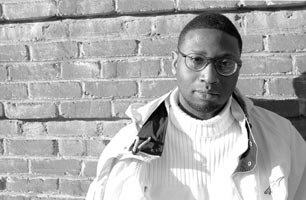>> Back to The HooK front page
NEWS- Fishing trip: 'harassment' charges in rapist search
Published March 25, 2004, in issue #0312 of the Hook BY LISA PROVENCE
Grad student Steven Turner thought he'd seen the last of the Charlottesville police. Last summer, while trying to solve the area's serial rapist case, police stopped him while he was riding a bike in his UVA-area neighborhood.
They asked him for a DNA sample. Turner declined, and wrote about the experience in an August 21, 2003, Hook essay, "My crime: 'You fit the description.'"
Last week, the police knocked on his door, cotton swabs in hand, and again asked him to provide DNA through a mouth swab called a "buccal." The encounter has left Turner shaken and has reopened charges of racial profiling. In its quest to find the man who's linked to at least six assaults and is a suspect in a dozen more, some wonder whether the CPD has overstepped its bounds.
"I'm very disappointed in the tactics," says Rick Turner, dean of UVA's Office of African-American Affairs. "When someone knocks on your door, it goes beyond profiling and borders on harassment."
Police Chief Tim Longo says he's taking the profiling allegations seriously. "I don't want the sense in the community we're overstepping our legal authority," says Longo. "This is a serious case, and we're trying to do the right thing, but if we've gone too far, we need to know that."
To date, Longo says, police have taken DNA samples from 570 African-American men. Longo met with Charlottesville's city and commonwealth's attorneys March 23 to go over criteria for contacts with people whose names are on the so-called "hit list" of suspects.
"I thought they were just fishing," says outraged grad student Turner, who wonders whether, if the rapist were a white male, 570 white Charlottesvillians would have been asked for a buccal. (He cites one simple reason he shouldn't be bothered again. The serial rapes date back to 1997; he's lived here only for a year and a half.)
The swabs don't stop at the city limits. "I live in Richmond," says Steven Sykes, who worked with one of the rape victims back in 1997. "I don't go to Charlottesville."
Sykes agreed to be swabbed because of the stress, and, he says, because he was afraid if he didn't cooperate, police would get a search warrant. "What choice do you have?" he asks.
"One has no legal obligation to give police DNA," declares attorney Deborah Wyatt, who notes that the Supreme Court is considering a case on whether one has to give even a name to police.
"What police don't want to acknowledge is how intimidating it is to be stopped by police, especially for African-American males," says Wyatt. "It shakes you up."
She says police are pursuing buccal swabs because they lack probable cause to obtain search warrants.
Longo vows to reexamine the protocol police used to put names on the suspect list. "Every once and awhile, you need to step back and assess," he says.
And if a suspect says no, does that make him even more suspicious?
"It would depend on why he's on the list," says Longo. For instance, an anonymous call would probably be given less credence than 10 calls about a potential suspect.
"You have a right to say no," Longo says. One of the things he discussed with attorneys March 23 is whether a refusal to give DNA could be considered a sufficient criterion to make a second request by police reasonable and where harassment begins.
Commonwealth's Attorney Dave Chapman says two requests for swabs are reasonable. "There's widespread agreement that after the second refusal, you've now been put on notice it's unwanted contact and offensive to that person," he says.
As for whether a refusal heightens suspicion, Chapman says that depends on other factors, such as height, weight, or age range.
"This is a difficult and controversial law enforcement arena," he says. "Police have to balance the need and public expectation they'll take proactive steps to solve this crime but they can't do just anything to solve it."
Meanwhile, Longo still has a brutal serial rapist to find, and a $20,000 reward hasn't produced the culprit. Though there haven't been any attacks since November 2002, Longo says he has no reason to believe the attacker has left the area.
"On a national level, people know he's out there, and we haven't heard his M.O. has turned up anywhere else," says the Chief. "That's why we're not letting our guard down."
And, he says, "I believe the community wants us to do everything legally and professionally to find this guy."
Longo offered to meet with Steven Turner, but Turner says he isn't inclined to take up the offer right now. "My contact with the Charlottesville police has not been positive," he says, adding that he's trying to focus on his dissertation proposal.
At the Curry School of Education, Turner's dean, David Breneman, calls Turner's treatment "highly questionable and invasive."
And at a time when UVA is working to increase numbers of black students and faculty, he's concerned about a community where 570 black men have been asked for DNA samples.
"If you were a potential African-American faculty member thinking of coming here, and you picked up a copy of this article, you'd have to wonder what sort of community you were coming to," he says. "This doesn't put a good face on Charlottesville."
The experience has been an eye-opener for Turner, who admits he's never looked at race issues critically before. And in a way, he says, "It's almost a positive thing that we sit down and talk about it."
Nonetheless, says Turner, "I don't want police to knock on my door again."

Just say no: Steven Turner turned down a second request to give DNA when police came to his house.
PHOTO BY JEN FARIELLO
#
>> Back to The HooK front page
|